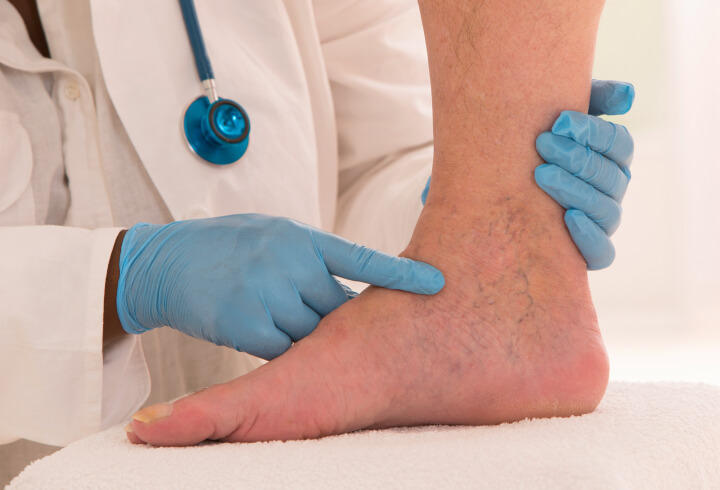As if the appearance of those bulging, rope-like blue and purple veins isn’t enough to keep you bothered, there’s the irritating itching that comes with it. Itchiness is a common symptom of varicose veins and it may seem strange for a medical condition that usually causes pain. If you understand how the veins and the body system work together, it will make so much sense why itching is a symptom of varicose veins.
So what causes varicose vein itching and what can you do about it? The itching is due to a condition called venous stasis dermatitis. This condition occurs when blood builds up in damaged vessels. The blood can eventually leak out into your skin. This plus the inflammation associated with it may lead to not having enough oxygen reaching your skin. This causes your skin over the veins to become red and itchy.
There are two main causes of varicose veins becoming itchy. One is increased histamine, which is a hormone released during an allergic reaction or response. When your varicose veins don’t function properly, your body works extra hard to repair them and thus produces hormones. This explains the sensation of itchiness that happens when your body is trying to heal your varicose veins.
Another cause is fluid leaking, which happens when the veins aren’t flowing blood back towards your heart. This results in blood accumulating in the veins which causes an increase in the pressure in the vein. To lessen the pressure, the blood would start leaking out of the vein and flow into the surrounding soft tissue like the skin. This irritates the skin since blood is meant to stay within the vein. It results in discoloration, rashes, and itching of the skin.
Learn More: When To Worry About Varicose Veins?
For most people, itching of the varicose veins is a mere nuisance that they just deal with as best as they can. For those who can’t tolerate the itchiness of the superficial vein and would rather do something about it, your doctor can recommend the following:
Medicated creams, antihistamines, and antibiotics — A corticosteroid or calcineurin inhibitor cream applied above the affected vein can help relieve the itch and quell the inflammation in your legs. You can also take antihistamines, which block the chemical histamine that makes your skin itch.
Your doctor can also prescribe antibiotics if the sores over your varicose veins get infected. These antibiotics can be taken orally or rubbed directly into the sores or skin rash.
Vein surgery may be necessary for more serious conditions brought about by severe varicose veins such as deep vein thrombosis. This is why you should seek a vein specialist to help you with a problematic vein since an untreated varicose vein can lead to more problems such as venous stasis ulcer, chronic venous insufficiency, venous ulcer or venous stasis ulcer, and venous eczema or varicose eczema.
Learn More: What Are The Options For Varicose Vein Surgery?
If you think that you can manage your itchy varicose vein and spider veins with home remedies, here’s what you can do to make your leg swelling more comfortable. Elevate your legs by propping them on a stool or pillow once every two hours, for about 15 minutes. This places your lower leg above your heart which will keep the blood flowing in the right direction and keep it from pooling in your veins.
Rubbing a moisturizer over the itchy vein can relieve the dryness and provide relief for itchy legs. Choose a gentle cream that doesn’t have fragrance or dye — a thick emollient cream or petroleum jelly can do the job well for itchy skin.
You can wear compression stockings too, which you can easily buy at your local drugstore. The tight material puts pressure on your legs to improve the circulation of your venous blood and calm the swelling. Getting one with the help of your vein doctor ensures that you get a pair that fits you well and the compression strength that’s best for your vein problem without affecting your blood flow.
Learn More: Ways You Can Treat Varicose Veins At Home

Vein Center Doctor is the preferred vein specialist in New York and New Jersey. It’s a full-service vein treatment facility offering outpatient vein treatment services, from diagnosis to aftercare, with high success results.
They offer multiple minimally invasive and non-invasive procedures for superficial thrombophlebitis, venous reflux, leg ulcer, leg pain, and other venous disease issues. The clinic uses only the latest in vein and blood vessel treatment technology. Call Vein Center Doctor now for your itching varicose veins treatment.
Most Insurance is accepted for treatment